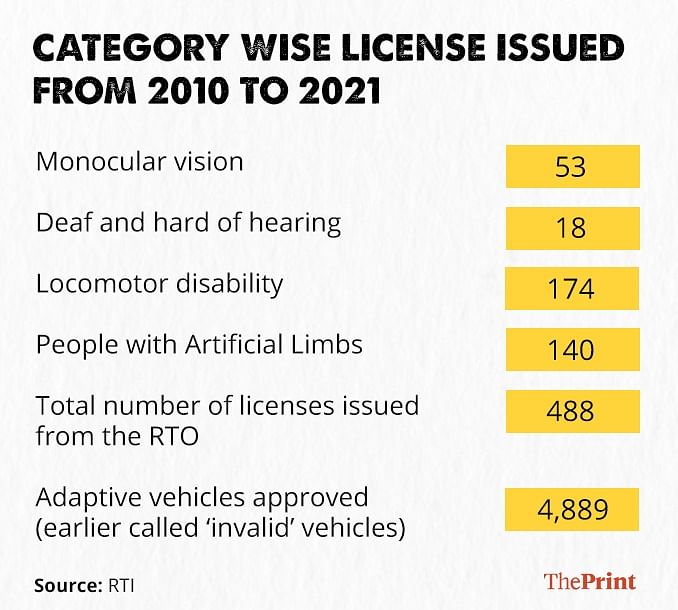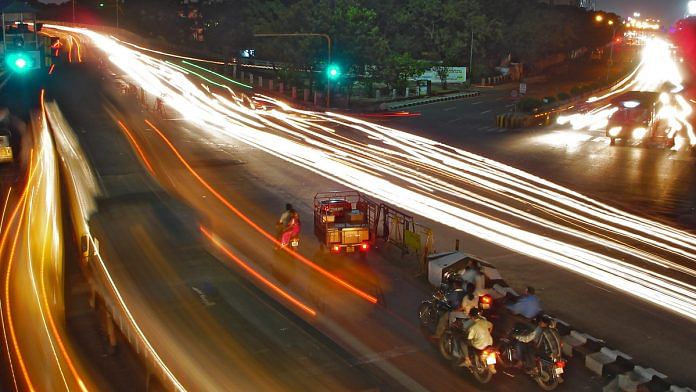On the face of it, buying a car and getting a driving licence is simple. Go to a driving school, go to a car dealer, buy a car and bang — now you own a car and have a licence to drive it, not much effort, and absolutely no mental agony. In fact, it’s chock-full of happiness. But, the scenario is altogether different for a person with disability. The process of buying a car and more specifically, getting a driving licence is a tedious and emotionally-wrecking process, as the system in place in India is muddled with insensitivity and lack of awareness.
Recently, an acquaintance, who is a person with (a locomotor) disability went to buy a car and get a licence, but he was shuttled from the Regional Transport Office (RTO) to the medical board, the car dealer to the retrofitting centre. After hearing his story, I wanted to know more about the state of driving licences issued to people with disabilities in Tamil Nadu. I filed RTI applications to 89 RTOs spread across various districts. I sent around 12 questions seeking information regarding driving licences for people with various disabilities from 2010 to now. The replies were shocking and revealed a sorry state of affairs.
I sent the same set of questions to all the RTOs, but the three districts, at the outset, replied that they could not provide information because ‘it wasn’t the information I was seeing, and instead, was asking questions’. (RTI has not stipulated any format for seeking information) Meanwhile, the other RTOs answered without any hiccups. Consolidating the replies from 72 RTOs, the answers to the questions reveal shocking details.

Out of nearly 13.36 lakh people with disabilities in Tamil Nadu, only 488 licences (both two, three-wheelers and four-wheelers) have been issued in the past 10 years. Some 4,889 adaptive vehicles have been approved, but only 488 licences have been issued. What, then, happened to the remaining adaptive vehicles? Are they being driven without a licence? It would’ve been understandable if these were the numbers from one district, but coming from an entire state, it shows the abysmal state of affairs.
Also Read: When ‘help’ hurts – Being nice isn’t an excuse to touch a disabled person without consent
Lack of communication and harassment
Regional transport authorities, car dealers, district medical boards and retrofitting centres are all cogs of the same machine when it comes to licences for a person with disability (PwD). However, there is a complete lack of coordination and communication between these parties.
There is a total lack of awareness among RTO officials, who are concerned with issuing driving licences, about people with disabilities. In fact, many RTOs still do not know that PwDs are eligible for driver’s licences, despite several government orders from both the Centre and the state and guideline after guideline for the issue of licences to PwDs.
When my acquaintance went to get a licence, there was confusion whether they should get the car first and modify it; or to get the medical certificate first, certifying his ability to drive. I have also heard from one of my deaf friends that he was harassed and his application torn in front of him when he went to get his driving licence. It might not be common knowledge, but the fear of getting harassed also deters people with disabilities from applying for a licence.
Then there is the medical board with three doctors to certify that a person with disability can drive a vehicle. Harassment here is also a common occurrence. My personal experience and stories heard from others show that doctors forget to be humane when it comes to people with disability.
Also Read: India’s online classrooms are outdated for disabled kids. Covid just made it worse
Unawareness among private players
While both RTO officers and medical board doctors are public authorities, the car dealer and retrofitting centre are private players. As per my experience, most car dealers are not aware that there is a 100 per cent road tax exemption and a 10 per cent GST exemption for persons with disability in Tamil Nadu. More often than not, in order to convince them, one has to show them a copy of the government order. Fortunately, FASTag concessions for the first five years can be applied online.
Even if a person with disability could drive a vehicle without modification/alteration, they have to compulsorily make some kind of alterations for getting a driving licence. Not only are such alterations unnecessary and uncomfortable, but they can also be done only in approved retrofitting centres. In Tamil Nadu, there are only two retrofitting centres — one in Coimbatore and the other in Chennai. So even if a person with disability is in Kanyakumari, they have to travel all the way to Coimbatore to carry out the modification and get it certified. The lack of more retrofitting centres poses a great hardship.
The government should come out with consolidated and comprehensive guidelines and protocols outlining a step-by-step process for issuing a licence to persons with disabilities. There should be interdepartmental communication and coordination for better processing of the applications of driving licence for PwDs. There should be awareness and sensitisation among the people involved in the process so that persons with disabilities are not harassed, discriminated against and ill-treated. The process should be less harsh and hassle-free as driving gives people with disabilities a great deal of independence in life.
Karpagam is the first female visually challenged Advocate at the Madras High Court. Views are personal.
(Edited by Srinjoy Dey)



